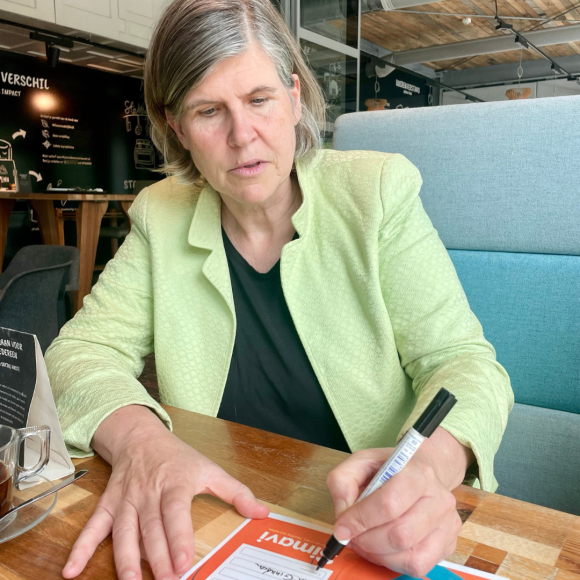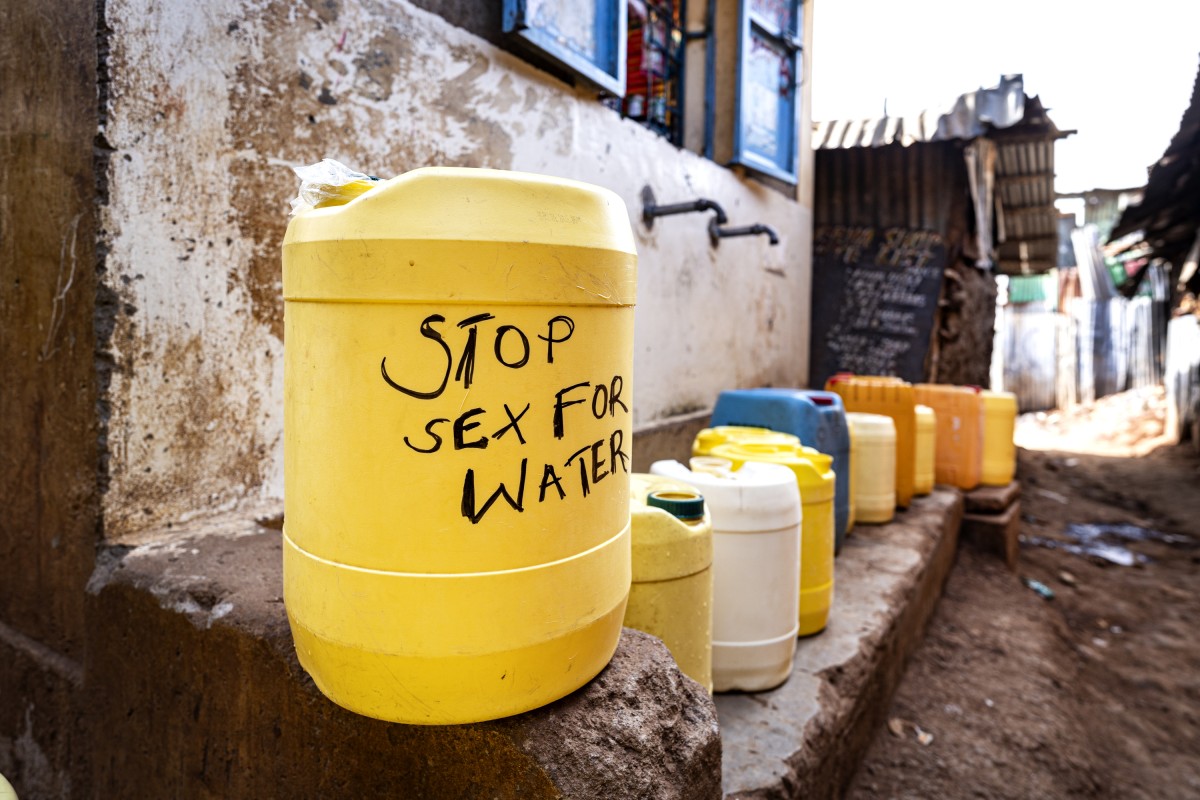Dutch Water Envoy Meike van Ginneken supports Simavi's petition Stop Sex for Water
She is a renowned water expert, previously worked for the World Bank and development organisation SNV and was recently appointed Dutch Water Envoy. Meike van Ginneken not only wants to put the Netherlands on the international map as a water country, she also wants to speak out against sextortion: 'Safe access to water is a women's rights issue.'
Being extorted to have sex in exchange for drinking water. It happens, and it's unacceptable, agrees Meike van Ginneken. Climate change is worsening access to water: droughts, but also floods are damaging water sources. As a result, in the cities, women and girls stand in line for hours for a jerry can of water, and in remote areas they walk for miles in search of water for their families. .

The endless trips and long waits keep them from going to school or earning an income, but it also leads to sexual extortion. Research shows that women and girls are harassed while queuing for water, sexually harassed and some even forced to have sex with the men who manage the water points in exchange for water.
Reason for Simavi to target the United Nations with the petition Stop Sex for Water. Simavi wants to collect 80,000 signatures to make an urgent appeal to the UN Special Rapporteur on water and sanitation, Pedro Arrojo-Agudo. Water Envoy Van Ginneken also signed the petition.
Why do you think it is important to support this petition?
'In my life, I have lived and worked a lot in places where access to water is limited, such as the Central African Republic and India. Girls and women are often the first to have to fetch water, which takes them a very long time, and I've seen how girls and women don't have access to toilets, so they sometimes even have to do their needs in the open at night. That poses enormous risks. What I have learned in my work in large water projects is that the drivers for women's access to water and sanitation are about dignity and safety. So not just about health, as we sometimes think. Safe access to water is about women's rights.'
How well known is the practice of sextortion for water among governments?
'Sextortion for water is a taboo subject in many countries. Women are not only abused, but they cannot tell their story, or take action against it. Here lies an important role for NGOs such as Simavi, the Dutch government and water professionals worldwide to make it discussable. The Netherlands has feminist and progressive policies, so there should be attention to this. You see that countries with progressive governments are also giving more strong women a voice in this debate, and that in several places "watergirls" are emerging: women who are working in the water sector. That is encouraging.’
'We must ensure that women are in a position to speak out'
What do you think is needed?
'Ultimately it's about the Sustainable Development Goal SDG6: all people should have access to water and sanitation. We need to ensure that women and girls no longer spend hours a day fetching water. While we work on this, we must also get rid of the taboo and ensure that women are in a position to speak out. Governments must take sextortion reports seriously so that local authorities and police can enforce the law. It's a combination of those ingredients: access to water, the position of women and following through on legislation.'
Why should everyone sign?
'Although sextortion may seem far from our bed in the Netherlands, there are quite a few parallels. Abuse of power and inequality are a problem everywhere, and we will have to continue to act together to stop it. With the "Stop Sex for Water" petition, we can raise awareness and bring about real change so that everyone has access to clean water and sanitation without fear of abuse.'

What are your biggest concerns and priorities?
'The water crisis is becoming more and more apparent. Many people still don't have drinking water or access to sanitation in their homes or yards. But these are human rights, so we want to work on them. We also face enormous water management challenges: by 2030 the demand for water is 40% higher than the supply. People experience climate crisis because of water: houses flood, crops fail or children go hungry: all water issues. That also means that management of water is not only the problem, but also the solution.'

